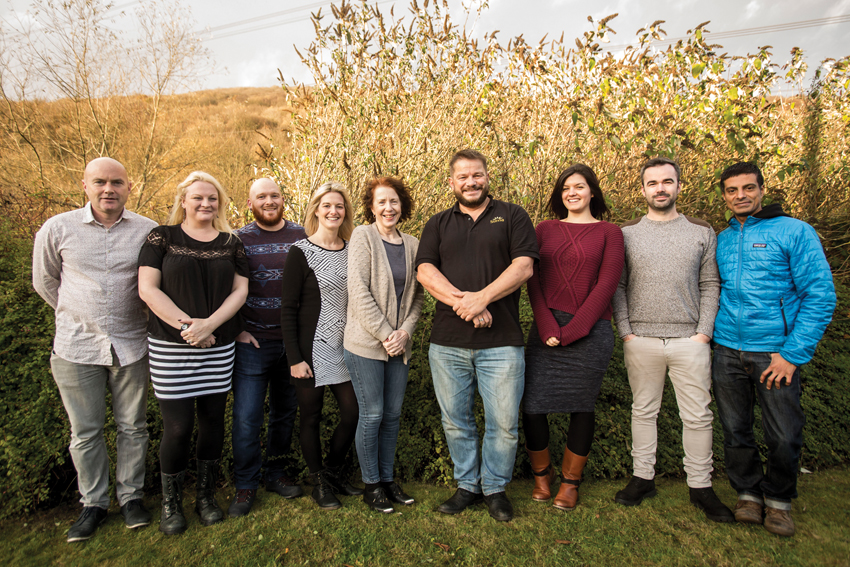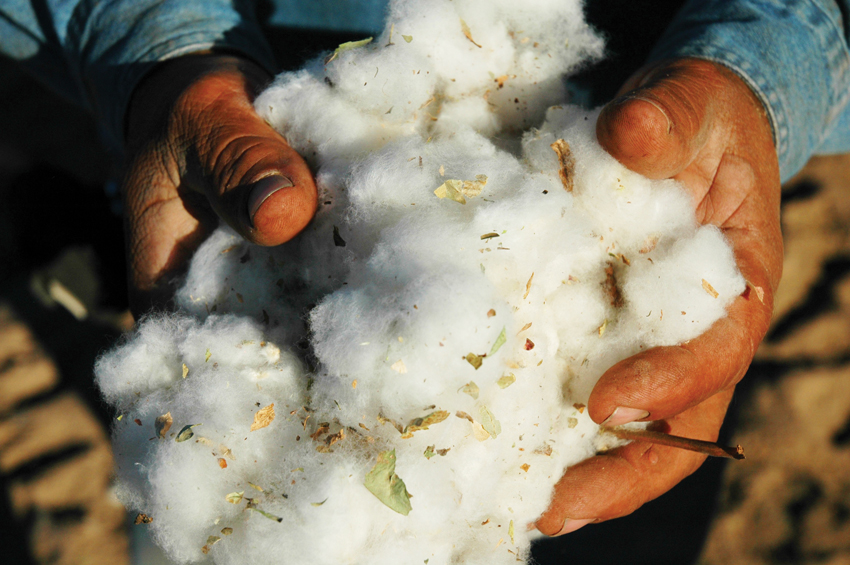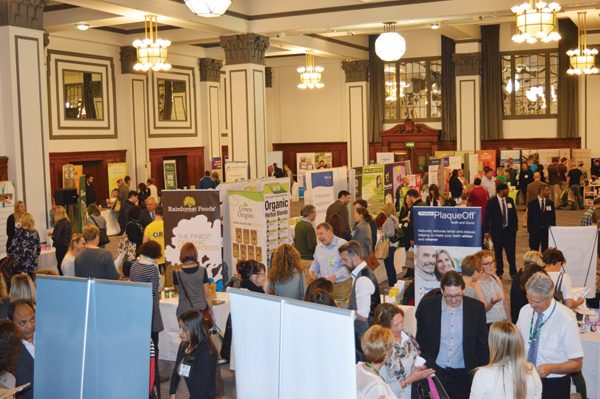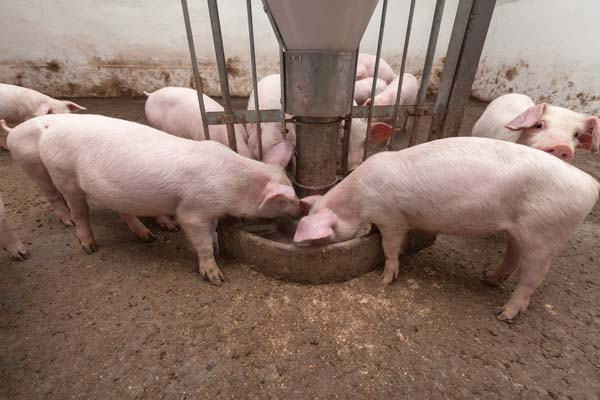Posted by admin on July 3, 2017 · Leave a Comment

Weleda’s Jardin de Vie fragrances have scooped a top eco beauty award.
The 2017 CEW Beauty Awards – considered the Oscars of the beauty industry – saw Weleda win one of the prestigious Lalique trophies at the awards presentation, scooping the CEW Eco Beauty Award for its Jardin de Vie (Garden of Life) collection.
The objective of the CEW Eco Award is to encourage steps towards greater sustainability within the beauty industry.
Weleda’s Communications Director, Susie Fairgrieve, commented: “We are absolutely thrilled. Sustainability is at the heart of the Weleda business. It shapes not just new product development but each and every day-to-day decision within the business. It demands real commitment, and patience, as it takes time to develop organic farming partnerships, to raise crops, or to design more sustainable packaging.”
Posted by admin on July 3, 2017 · Leave a Comment

The worker’s co-operative, Suma, has been awarded the prestigious Queen’s Award for Enterprise in the International Trade category.
The Queen’s Awards are amongst the most prestigious awards in the UK, designed to celebrate outstanding achievements in business.
And as its marks 40 years in business in 2017, Suma has been recognised for strong, continued growth in international sales, as well as its co-operative ethos and great employment benefits, such as equal pay for all workers and flexible working.
Suma, an ethical wholefood wholesaler located near Halifax, in West Yorkshire, serves both the UK and export market with a range that extends to more than 7,000 lines of ambient, chilled and frozen goods. With a growing workforce of more than 250 people, the business contributes to local employment in the Calderdale area and brings many benefits to the local economy, such as providing £2,500 worth of food to support the victims of the Boxing Day floods that struck the area on Boxing Day 2015.
Stephen Newton, a member of Suma’s International Sales Team, commented: “We’re really thrilled at the amazing growth of our international sales, and that we can make delicious, ethical vegetarian food available to a wider audience. By winning this award, we’re proud to prove that our local business can hold its own against the big players in international trade.”
Posted by admin on July 3, 2017 · Leave a Comment

A new study has revealed that millions of farmers are not earning enough from conventional cotton farming.
That is according to the Fairtrade Foundation, which has revealed the results of new research, which was designed to provide fashion brands with a useful tool to improve the transparency of cotton sourcing and deepen understanding of their social and environmental responsibilities.
Following the research, the Fairtrade Foundation warned that unless cotton is farmed sustainably, its production leaves a heavy environmental and social toll, which will affect its long-term viability.
The study measured the environmental and social impacts on rural households in India, one of the world’s largest producers of cotton. The valuation tool translates environmental and social values into the language of business and economics. It converts impacts and dependencies into costs and benefits expressed in monetary terms. With an overall indication of cost and benefit, companies can identify trade-offs and synergies in a systematic way.
It found that the combined social and environmental costs of Fairtrade cotton farming are five times lower than that of conventional cotton farming. Data showed that the impacts of Fairtrade farming methods were 97 per cent lower for the social elements and 31 per cent lower for environmental components studied.
The most significant social advantage for Fairtrade farmers was having more income. The research compared community benefits from Fairtrade Premiums, fair wages, income for farmers, engagement of unacceptable labour practices, such as child labour and social cost of overtime. It revealed that Fairtrade cotton farmers tend to have lower social costs, and higher social benefits such as fairer wages and investment in local schools.
Fairtrade cotton performed significantly better than conventional for all environmental KPIs cotton. Areas surveyed included land use, water pollutants, water use, GHG emissions and soil pollutants.
Subindu Garkhel, Cotton Manager at the Fairtrade Foundation, said: “Cotton is an integral part of our lives, from the sheets on our beds to the identity we project through the clothes we wear. Not only that, but cotton also provides livelihoods for millions across the globe. But there is a strong cost for people and planet with cultivating the cotton that goes into our clothes, and our study shows that is markedly higher for conventional cotton farming.
“This research illustrates how Fairtrade empowers farmers to decide their own future, is better for their communities and has a substantially lower footprint than conventional cotton.”
Posted by admin on July 3, 2017 · Leave a Comment

Registration is now open for the Natural Health Trade Summit 2017 in what promises to be its biggest year to date.
The one-day trade event takes place at The Principal Hotel, formerly The Palace Hotel, in Manchester on October 22, and is held in association with the National Association of Health Stores (NAHS).
This year’s event, the third time it has taken place, will be bigger than before, with a newly expanded exhibition space upstairs to cater to demand. This will be in addition to the already established exhibition downstairs.
With more exhibitors than ever, across a range of sectors, including organic food and bodycare, the event will also once again play host to a selection of roundtable events, being held throughout the day on a range of topics.
Sales Director, Ruth Gilmour, commented: “We are proud that the NHT Summit has become an essential date in the industry’s calendar, being the UK’s only event dedicated entirely to the independent health food industry.
“Celebrating all that’s good about the industry, visitors can enjoy roundtable discussions tackling the hottest topics in retailing, over 100 exhibitors showcasing their new products and show-only discounts and plenty of opportunities to meet and network. We are excited to be able to grow the show this year, and we look forward to welcoming you all.”
And take it from retailer, Joanne Hill, from Amaranth, in Stockport, who visited last year and commented: “We are full of ideas after the Natural Health Trade Summit! It’s a lovely place to catch up with suppliers old and new.”
Registration is free at www.nhtsummit.co.uk and we are encouraging all readers of Organic & Natural Business to attend this important annual event. And for retailers looking to make a weekend of it, there are discounted hotel rates at all local hotels; visit www.reservation-highway.co.uk/nht17 to book. If you are planning to stay, we recommend booking your hotel as soon as possible as rooms are limited and sold on a first-come-first-served basis.
Posted by admin on December 2, 2016 · Leave a Comment

The Soil Association has raised its concern at the continued overuse of farm antibiotics across Europe.
New data from the European Medicines Agency (EMA) has revealed that many European countries are failing to put an end to massive overuse of antibiotics in farming, with use of antibiotics in Europe remaining more than twice as high in animals as in humans.
The O’Neill Review on antimicrobial resistance, commissioned by the UK Government, recommended that high-income countries should aim for a short-term target of 50mg of antibiotic per kg of livestock, however, the EMA shows that the average European level of use is over three times higher at 152 mg/kg.
In the 25 European countries which provided comparable data, sales of farm antibiotics per unit of livestock went down by just two per cent in 2014 compared with 2013.
The EMA data revealed that more than 91 per cent of European farm antibiotics are used for mass medication in feed or drinking water. A large proportion of this is for routine disease prevention in intensively farmed pigs and poultry. In contrast, in Sweden, where there is no routine medication, 90 per cent of farm antibiotic use is for individual treatments. Antibiotic use in the British livestock in 2014 was at similar levels to 2013 and significantly below the EU average, at 62 mg/kg. However, the main reason for apparently quite low consumption is that, compared with other countries, the UK has a very high proportion of low-consuming sheep and relatively few high-consuming pigs. The Alliance estimates that antibiotic use in British pigs is actually at around 265 mg/kg.
Cóilín Nunan, of the Alliance to Save Our Antibiotics, said: “The shocking overuse of farm antibiotics shown by these data is a result of the continued failure by most countries to ban routine preventative mass medication in intensive farming. Spain now uses 100 times more antibiotics per unit of livestock than Norway, 80 times more than Iceland and 35 times more than Sweden. The main reason for the difference is that Spain, like most of Europe, allows routine mass medication, whereas the Nordic countries do not. The increased use of last-resort and critically important antibiotics is particularly alarming and confirms that reliance on voluntary and softly-softly approaches is not working.”
In January, discussions are to start between the European Commission, the European Parliament and the Council of Ministers; the European Parliament has proposed a ban on all routine antibiotic use, but this has not yet been accepted by the Council of Ministers or the Commission.
Nunan added: “The British Government must support the European Parliament’s proposed ban on routine mass medication in the upcoming ‘Trialogue’ negotiations. When Brexit happens, the Prime Minister says that EU rules and regulations will be converted into British law with the Great Repeal Bill, so these negotiations are going to be hugely important for the future of British farming.”


 Organic & Natural Business magazine
Organic & Natural Business magazine




